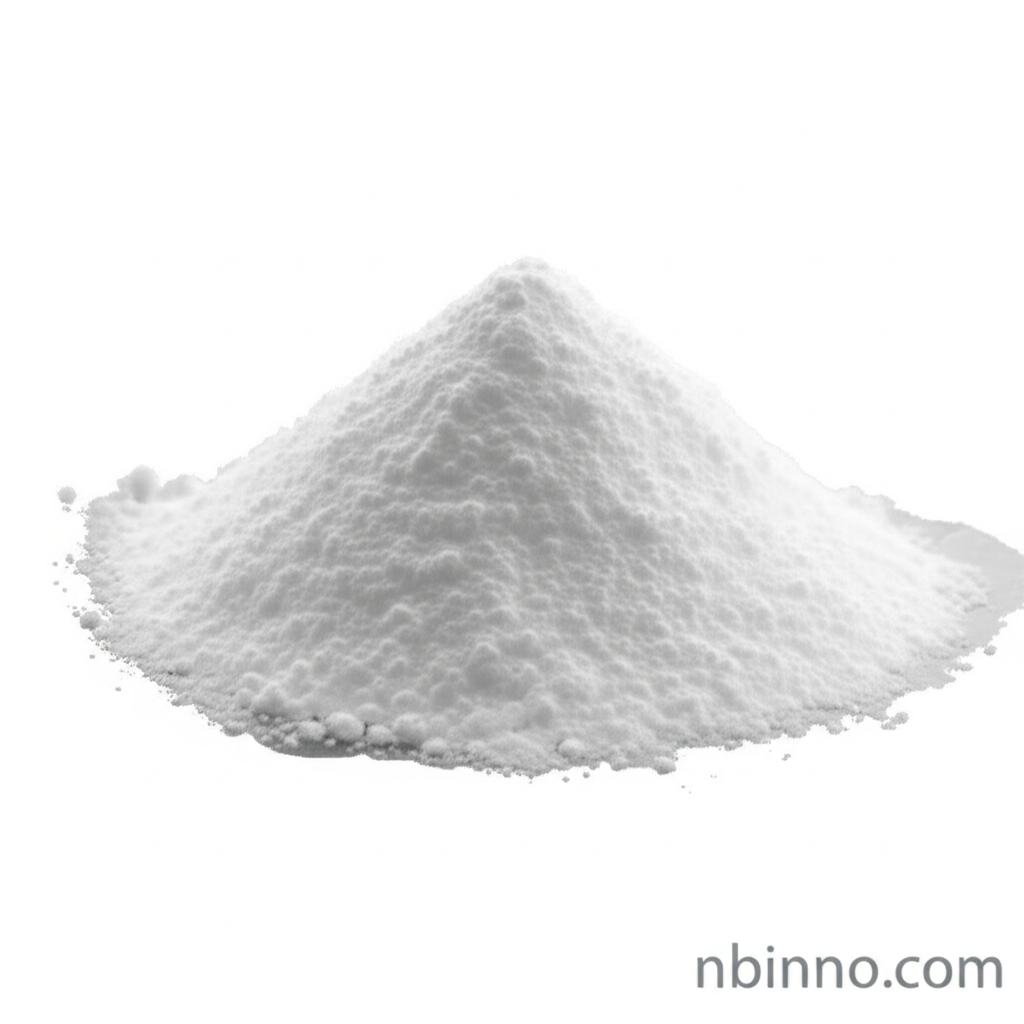Diazoxide (364-98-7): A Comprehensive Overview of its Pharmaceutical Applications and Research
Explore the multifaceted role of Diazoxide in medicine, from managing hypoglycemia to cutting-edge research.
Get a Quote & SampleProduct Core Value

Diazoxide
Diazoxide is a vital pharmaceutical compound known for its efficacy in managing hypoglycemia by preventing insulin release from the pancreas. Its mechanism involves acting as a peripheral vasodilator and a selective ATP-dependent K+ channel activator. It plays a significant role in various research applications, including studies on cardiovascular health and metabolic disorders.
- Understanding Diazoxide's mechanism of action is key to unlocking its therapeutic potential in managing hypoglycemia.
- Diazoxide drug interactions require careful consideration for safe patient management.
- Research applications for Diazoxide extend to cardiovascular health and metabolic disorder studies.
- The compound is utilized in diabetic studies to understand glucose concentrations and insulin secretion.
Key Advantages
Effective Hypoglycemia Management
Diazoxide is a cornerstone in treating symptoms of hypoglycemia, particularly when caused by conditions like pancreas cancer or surgery, by regulating insulin secretion, a critical aspect of blood glucose balance.
Vasodilatory Properties
Its function as a peripheral vasodilator makes Diazoxide a compound of interest in managing conditions related to blood pressure and vascular tone, offering a unique therapeutic profile.
Broad Research Utility
The compound's diverse biological activities, including its impact on ion channels and metabolic pathways, make it invaluable for ongoing pharmaceutical research and development.
Key Applications
Hypoglycemia Treatment
Diazoxide is primarily used to manage hypoglycemia by preventing the release of insulin from the pancreas, helping to stabilize blood sugar levels in patients with specific medical conditions.
Antihypertensive Research
Historically, its vasodilatory effects have been explored in the context of hypertension, positioning it as a subject of interest in cardiovascular research.
Ion Channel Modulation Studies
As a known activator of ATP-dependent K+ channels and a blocker of calcium channels, Diazoxide is extensively used in research to understand cellular signaling pathways and ion channel function.
Metabolic Research
Its influence on glucose release by the liver and catecholamine release makes Diazoxide a valuable tool in research focused on metabolic disorders and cellular energy regulation.
